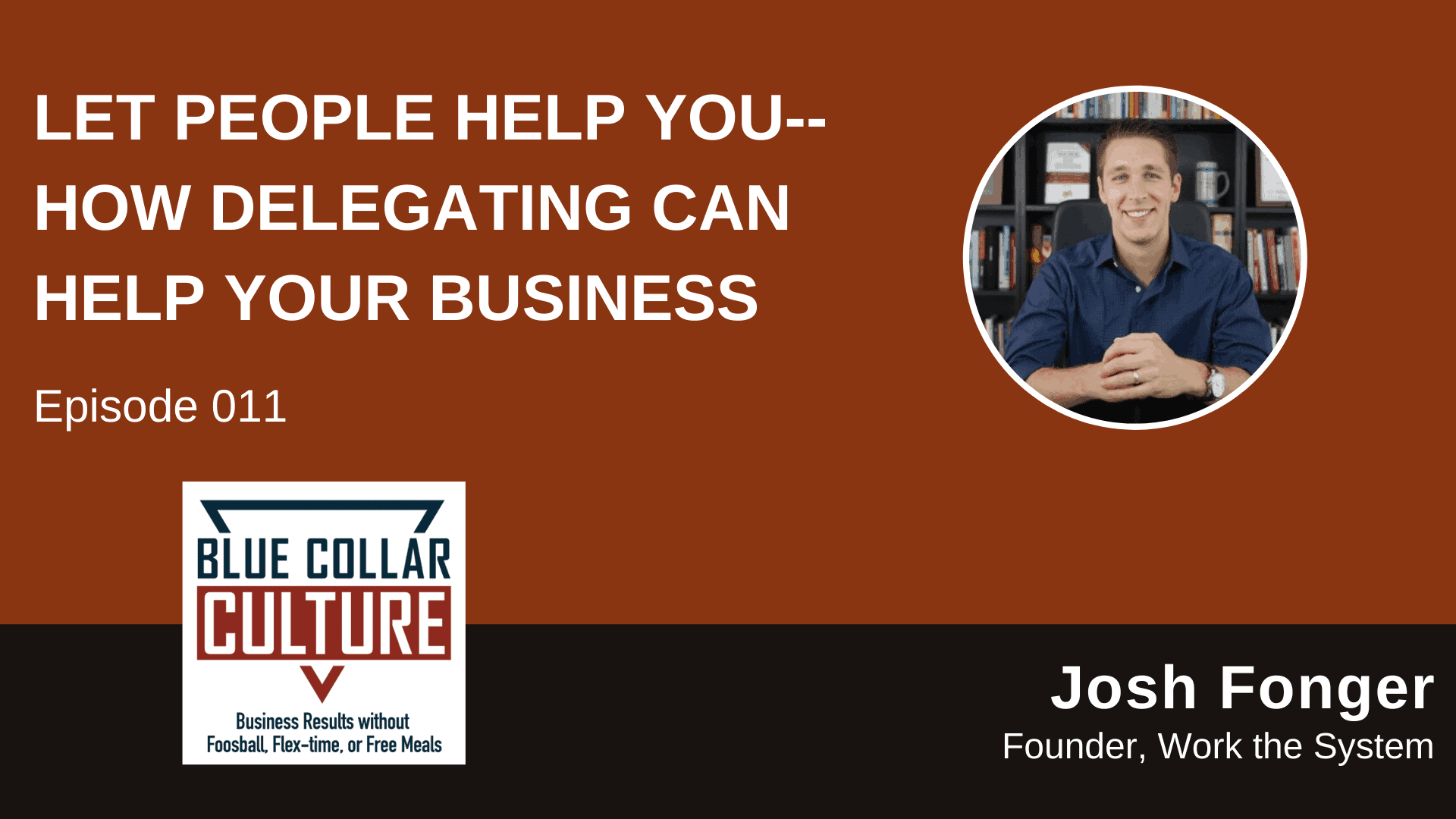In today’s episode of Blue Collar Culture, we sit down with Josh Fonger, a business performance architect and co-founder of Work The System. Josh is an international business consultant, coach, and speaker… all while helping hundreds of businesses grow simply by applying the systems created by Work The System.
Josh’s specialty is taking stressed out entrepreneurs from working in their business to working on their business using his simple system. This leads to profit and freedom becoming more consistent.
This interview had so many insights that we’re excited to share with you! We’ll chat with Josh about documenting systems in your business, why systems are important for your employees’ success, as well as…
- How to get the system in your head into a documented system your team can actually follow
- How your ability and willingness to change will affect your success
- Handing off tasks when you feel like you’re the only one who can do it
- How to stop being a slave to your business
- The steps you need to take to be more efficient
- And more
Listen now…

